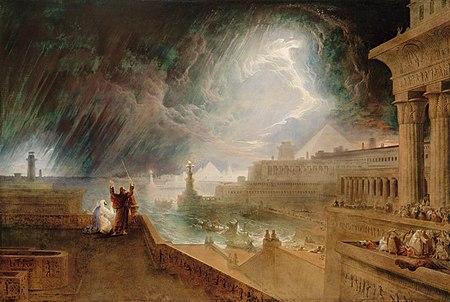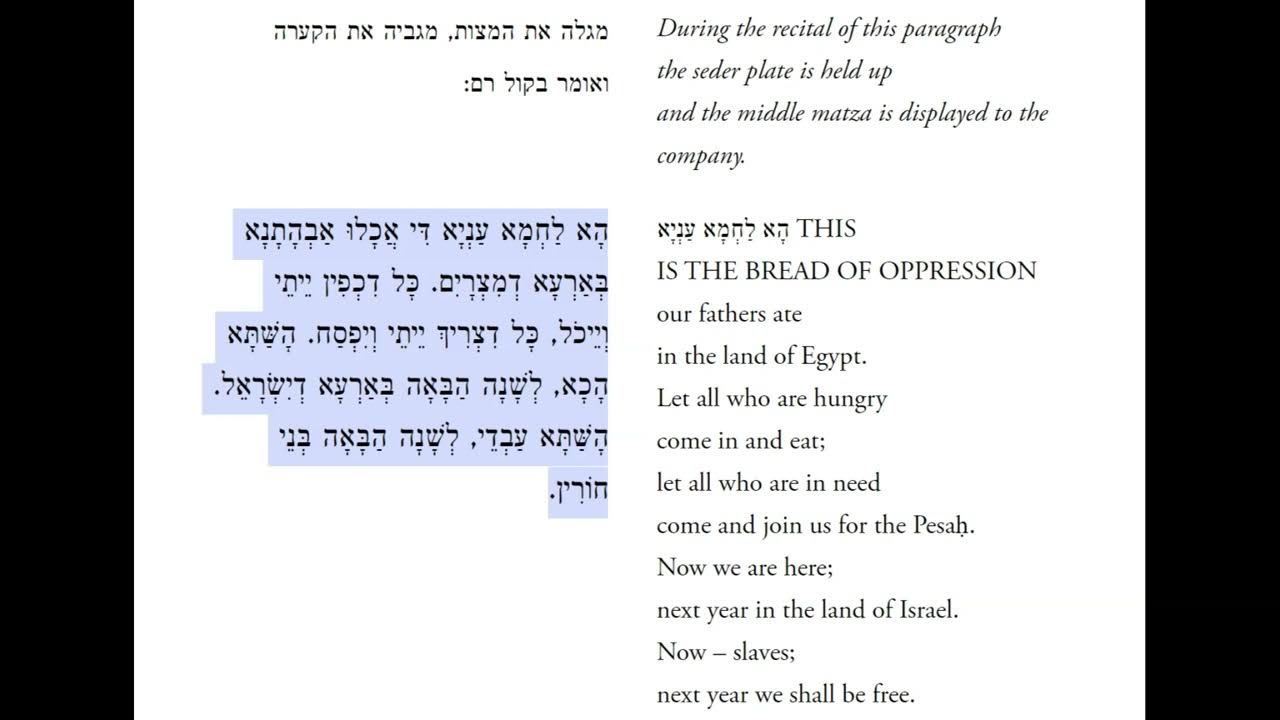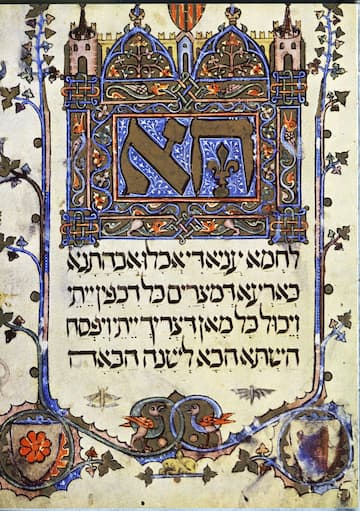| Fact | Description |
|---|---|
| Parashah Number | 6th Parashah in the Book of Exodus (Shemot) |
| Parashah Name | VaEra (וָאֵרָא) means “And I appeared” in Hebrew, reflecting God’s manifestation to Moses at the beginning of the portion. |
| Torah Book | Exodus (Shemot) |
| Number of Verses | 121 verses |
| Number of Words | Approximately 2,132 words (in the Hebrew text) |
| Primary Characters | Moses, Aaron, Pharaoh, and the Israelites are central figures. God’s role is paramount as the plagues unfold. |
| Key Themes | Divine intervention, liberation, the hardening of Pharaoh’s heart, the demonstration of God’s power through the plagues, and the Israelites’ journey toward freedom. |
| Significant Events | God’s revelation to Moses, Moses and Aaron’s confrontations with Pharaoh, the first seven plagues (blood, frogs, lice, wild beasts, disease, boils, hail), and Pharaoh’s continued resistance. |
| Notable Quotes | Various verses throughout VaEra, including God’s declaration: “I am the LORD, and I will bring you out from under the yoke of the Egyptians. I will free you from being slaves to them” (Exodus 6:6). |
| Legacy | Parashat VaEra sets the stage for the subsequent plagues and the eventual liberation of the Israelites, illustrating the theme of divine justice and redemption. |
| Relevance Today | The themes of liberation, the consequences of stubbornness, and the power of divine intervention remain relevant, offering reflections on freedom and the impact of resistance to justice. |
| Well-Known Stories | The plagues of blood, frogs, and the other disasters are iconic narratives that captivate readers and listeners, highlighting the struggle for freedom against oppressive forces. |
| Special Observances | VaEra is regularly read during synagogue services and studied in Jewish communities as part of the annual Torah reading cycle. |
| Connections to Other Texts | VaEra connects the narrative from the Book of Genesis to the subsequent events leading to the Exodus, creating a seamless transition in the overarching story of the Israelites. |
| Theological Significance | Parashat VaEra emphasizes God’s sovereignty, justice, and the fulfillment of divine promises, showcasing the consequences of resisting God’s will and the eventual triumph of liberation. |
Parashat VaEra is the sixth weekly Torah portion in the Book of Exodus (Shemot). The name “VaEra” is derived from the opening verse of the portion, which states, “And I appeared” in Hebrew. This parasha covers Exodus 6:2-9:35 and continues the narrative of the Israelites’ enslavement in Egypt and the beginning of their redemption.
Key events and themes in Parashat VaEra include:
God’s Revelation to Moses: In the opening verses, God reassures Moses of the divine plan to free the Israelites from bondage. God emphasizes the significance of the covenant with the patriarchs and reveals the name YHWH to Moses in a more explicit manner.
Moses and Aaron before Pharaoh: Moses and Aaron approach Pharaoh to demand the release of the Israelite slaves. However, Pharaoh remains defiant, leading to a series of confrontations and plagues.
The Ten Plagues: The parasha details the first seven plagues inflicted upon Egypt: blood, frogs, lice, wild beasts, disease, boils, and hail. Each plague is a demonstration of God’s power and serves as a call for Pharaoh to release the Israelites. Despite the escalating severity, Pharaoh’s heart remains hardened.
Pharaoh’s Hardened Heart: A recurring theme in Parashat VaEra is Pharaoh’s stubbornness and the hardening of his heart. This hardening is both a consequence of his own choices and a part of God’s plan to showcase divine power.
The Message of the Plagues: Beyond their immediate impact, the plagues convey a broader message about the God of Israel’s sovereignty over the forces of nature and the futility of resisting divine will.
Moses’ Intercession: Throughout the narrative, Moses serves as an intermediary between God and Pharaoh. Despite the challenges, Moses remains steadfast in his commitment to leading the Israelites to freedom.
The Purpose of the Plagues: The plagues are not merely acts of punishment but are designed to demonstrate God’s authority, prompt Pharaoh to acknowledge the Israelites’ God, and ultimately secure the release of the enslaved nation.
Parashat VaEra underscores the themes of liberation, divine intervention, and the unfolding plan of God in the Exodus narrative. It sets the stage for the later plagues and the ultimate liberation of the Israelites, highlighting the pivotal role of Moses as the leader chosen to guide the people through this transformative journey.
וארא
Vaera
Exodus 6:2-9:35
יחזקאל
כ״ח:כ״ה-כ״ט:כ״א
Ezekiel
Thus said the Sovereign GOD:
I am going to deal with you, O Pharaoh king of Egypt,
Mighty monster, sprawling in your channels,
Who said,
My Nile is my own;
I made it for myself.
And make the fish of your channels
Cling to your scales;
I will haul you up from your channels,
With all the fish of your channels
Clinging to your scales.
With all the fish of your channels.
You shall be left lying in the open,
Ungathered and unburied:
I have given you as food
To the beasts of the earth
And the birds of the sky.
That I am GOD.
Because you were a staff of reed
To the House of Israel:
And wound all their shoulders,
And when they leaned on you, you would break,
And make all their loins unsteady.
Vaera
more on Parashat Vaera
Quick Guide: The Five Books of Moses
| Genesis | Exodus | Leviticus | Numbers | Deuteronomy |
|---|---|---|---|---|
| Bereshit (1:1-6:8) |
Shemot (1:1-6:1) |
Vayikra (1:1-5:26) |
Bemidbar (1:1-4:20) |
Devarim (1:1-3:22) |
| Noach (6:9-11:32) |
Va'era (6:2-9:35) |
Tzav (6:1-8:36) |
Naso (4:21-7:89) |
Va'etchanan (3:23-7:11) |
| Lech Lecha (12:1-17:27) |
Bo (10:1-13:16) |
Shemini (9:1-11:47) |
Behaalotecha (8:1-12:16) |
Ekev (7:12-11:25) |
| Vayera (18:1-22:24) |
Beshalach (13:17-17:16) |
Tazria (12:1-13:59) |
Shelach (13:1-15:41) |
Re'eh (11:26-16:17) |
| Chaye Sarah (23:1-25:18) |
Yitro (18:1-20:23) |
Metzora (14:1-15:33) |
Korach (16:1-18:32) |
Shoftim (16:18-21:9) |
| Toledot (25:19-28:9) |
Mishpatim (21:1-24:18) |
Achare Mot (16:1-18:30) |
Chukat (19:1-22:1) |
Ki Tetze (21:10-25:19) |
| Vayetze (28:10-32:3) |
Teruma (25:1-27:19) |
Kedoshim (19:1-20:27) |
Balak (22:2-25:9) |
Ki Tavo (26:1-29:8) |
| Vayishlach (32:4-36:43) |
Tetzave (27:20-30:10) |
Emor (21:1-24:23) |
Pinchas (25:10-30:1) |
Nitzavim (29:9-30:20) |
| Vayeshev (37:1-40:23) |
Ki Tisa (30:11-34:35) |
Behar (25:1-26:2) |
Matot (30:2-32:42) |
Vayelech (31:1-30) |
| Miketz (41:1-44:17) | Vayakhel (35:1-38:20) |
Bechukotai (26:3-27:34) |
Masei (33:1-36:13) |
Haazinu (32:1-52) |
| Vayigash (44:18-47:27) |
Pekude (38:21-40:38) |
V'Zot HaBeracha (33:1-34:12) |
||
| Vayechi (47:28-50:26) |









Parashat Aharei Mot Weekday reading Moroccan te’amim